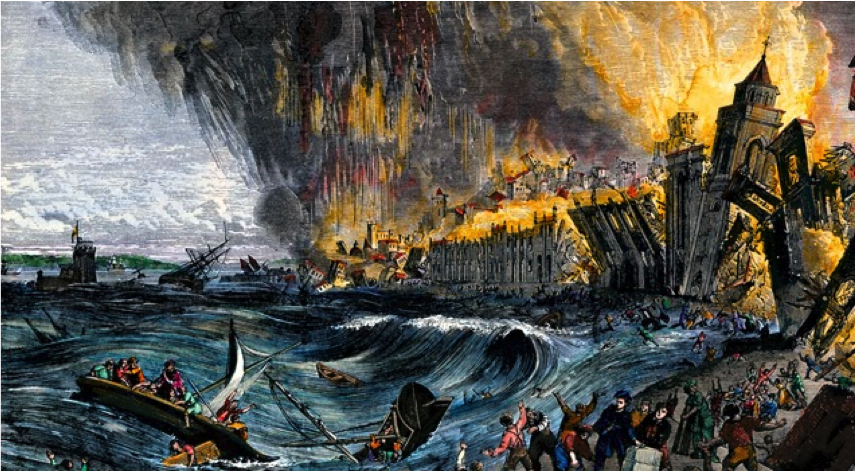«Vidi a un tratto una grossa trave del soffitto non solo muoversi ma girare verso destra e poi tornare, con un movimento lento e ininterrotto, al suo posto... Non dissi nulla, quasi rallegrato da quel fenomeno. Qualche secondo dopo la scossa si ripetè, e non potei più trattenermi dal gridare: Un' altra, un' altra, gran Dio, ma più forte!. Gli arcieri, spaventati dalla mia empia invocazione, fuggirono atterriti...». (G. Casanova diaries)
Screamed Giacomo Casanova, Venetian adventurer and writer (1725-1798), imprisoned since July 1755 in the prison inside the Dogi's Palace, called the Piombi, in Venice, hoping that a new earthquake, stronger, would open a breach in the prison walls allowing him to escape.
It is estimated that the earthquake, which happened on the morning of November 1, 1755, occurred in the Atlantic Ocean, a few tens of kilometers southwest of the city of Lisbon, with a magnitude of about 8.5. Felt in most of Europe, caused damage in an area of about 800,000 km2 and almost totally destroyed the city of Lisbon, where it is estimated that between 25 and 30% of the population lost their lives.
It was probably the biggest seismic disaster in Western Europe, causing about 100,000 deaths considering the damage caused by the earthquake, the effects of the tsunami and the fires that developed in urban areas (Gutscher et al., 2006).«per esempio, la natura non aveva affatto riunito in quel luogo ventimila case di sei o sette piani, e che se gli abitanti di quella città fossero stati distribuiti più equamente sul territorio e alloggiati in edifici di minor imponenza, il disastro sarebbe stato meno violento o, forse, non ci sarebbe stato affatto.»(Rousseau, 1756).
Even today, Rousseau's consideration keeps its value intact, as we unfortunately have to see after every major earthquake that hits our country.


